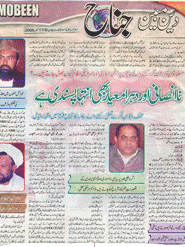PEW slates propaganda against Governemnt’s coal power generation plans
Click here to View Printed Statements
Powerful oil lobby want increased share of imported fuel in the energy mix
Pakistan’s energy mix a big threat to economic revival
The Pakistan Economy Watch (PEW) on Sunday slammed propaganda against government’s coal power generation plans terming it an attempt of powerful oil lobby to further tilt energy mix in favour of imported fossil fuel.
Converting furnace oil based power plants to Thar coal can help save around six billion dollars being spent on import of furnace oil which is around 40 per cent of the energy mix, it said.
Oil import bill in the current fiscal is set of cross $ 15 billion due to CNG suspention widening current account deficit has already crossed mark of two billion dollars in the first seven months of the current fiscal as compared to 441 million last year, said Dr. Murtaza Mughal, President PEW.
He said that coal is the cheapest fuel for power production with 41 per cent share in global power generation but it is never got proper attention in Pakistan.
Our oil import bill will become around $ 50 billion in a decade which necessitates usage of Thar coal for power generation, he added.
Dr. Murtaza Mughal said that with 175 billion tonnes of coal can help Pakistan become a major player as world is left with 1004 billion tonnes of coal with consumption estimated at 9.98 billion tonnes by 2030.
He noted that country continues to pay a heavy price for running power plants on furnace oil and natural gas while some lobbies have started a campaign to thwart government’s plans to use coal.
He demanded that private power producers demanding permission to switch to coal should be encouraged.
Coal accounts for over 50 per cent of US power generation while neighbouring India is expected to overtake America by 2025. South Africa’s 93 per cent and China’s 68.7 per cent electricity comes from coal, he informed.
Conversion of power plants will cut oil import bill and bring production cost down to affordable limits, reduce borrowings, help cull circular debt, bridge budgetary gap, and improve position of balance of payments, said Dr. Mughal.





